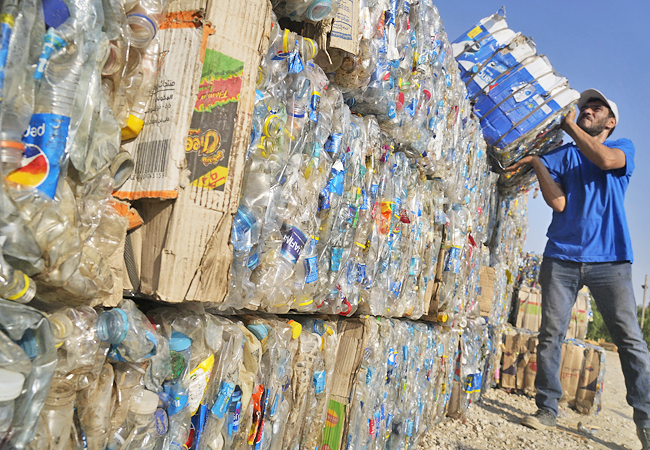PARIS (AP) – Global negotiators have agreed to craft a draft treaty to end plastic pollution, a preliminary but crucial step toward tackling one of the most lasting sources of human waste.
Environmental advocates cautiously welcomed the outcome of five days of United Nations (UN) talks in Paris on plastic pollution, but expressed concern that the petroleum industry and some governments would water down the eventual treaty. Most plastic is made from fossil fuels.
Delegates at the Intergovernmental Negotiating Committee for Plastics agreed on Friday evening to produce an initial draft before their next meeting in Kenya in November, participants said. The committee is charged with developing the first international, legally binding treaty on plastic pollution, on land and at sea.
A coalition of “high-ambition” governments led by Norway and Rwanda, along with environmental groups, want to end plastic pollution by 2040 by slashing production and limiting some chemicals used in making plastics.
“Projections suggest that a child born today will see plastic production double by the time they turn 18, but we know that the consequences of increasing plastic production will be disastrous for our health, the planet, and the climate,” said Dr Tadesse Amera, who led the International Pollutants Elimination Network’s delegation at the talks. “The stakes are high, but we are optimistic by the growing awareness of the need for global controls.”

Countries with big petroleum industries like the United States, China and Saudi Arabia are focussing on plastic recycling, and want country-by-country rules instead of across-the-board limits.
Senior director for global plastics policy at the American Chemistry Council Stew Harris argued for allowing each government to “use the right tools based on their unique circumstances”.
In a statement to The Associated Press as the talks wrapped up, he said that reusing plastics was “at the forefront of the negotiations as a means to tackle pollution and be more sustainable in producing and consuming plastics. We agree that’s the best path”.
Humanity produces more than 430 million tonnes of plastic annually, two-thirds of which are short-lived products that soon become waste, filling the ocean and, often, working their way into the human food chain, the UN Environment Programme said in an April report. Plastic waste produced globally is set to almost triple by 2060, with about half ending up in landfill and under a fifth recycled, according to the Organization for Economic Cooperation and Development.
Over 2,000 participants from nearly 200 countries, including governments and observers, took part in this week’s talks.









